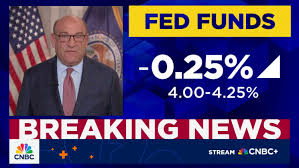Understanding BRICS: A New Era of Global Cooperation

Introduction
BRICS, an acronym for Brazil, Russia, India, China, and South Africa, represents a significant coalition of emerging economies, encompassing over 40% of the world’s population and around 25% of global GDP. Established in 2009, BRICS serves as a platform for member countries to promote peace, security, and development in a multipolar world. The relevance of BRICS has surged recently, given the shifting dynamics in global trade, economic policies, and geopolitical landscapes.
Current Developments
As of 2023, BRICS has gained considerable attention due to its expanding influence. Following a historic summit in Johannesburg, the bloc announced the inclusion of six new members – Argentina, Egypt, Ethiopia, Iran, Saudi Arabia, and the United Arab Emirates. This expansion marks a pivotal shift as it increases BRICS members from five to eleven, signifying a united front among emerging economies aiming to challenge Western dominance in international affairs.
Member nations are showcasing their commitment to foster cooperation in finance, trade, and investment. Recent initiatives include the establishment of the New Development Bank (NDB) to finance infrastructure projects and promote sustainable development. In light of the ongoing global economic disruptions and shifting trade alliances, BRICS is positioning itself as a viable alternative to traditional Western financial systems.
Significance for Global Affairs
The growing prominence of BRICS holds significant implications for global governance. Its emergence suggests a need for a more inclusive and representative world order. Analysts predict that BRICS could evolve into a counterbalance to Western powers, especially as tensions mount in international politics. This coalition not only focuses on economic collaboration but also addresses shared challenges like climate change, healthcare, and technology exchange, demonstrating its multi-faceted approach to global cooperation.
Conclusion
The future of BRICS appears bright as it continues to adapt to the changing geopolitical landscape of the 21st century. As the member countries work collectively to enhance economic growth and foster political partnerships, the world will be watching closely. The era of BRICS presents an opportunity for emerging nations to assert their interests and influence global policies that reflect a more multipolar world. For readers, understanding BRICS is essential not only to grasp current economic trends but also to predict potential shifts in global power dynamics that could directly impact national and global interests.









